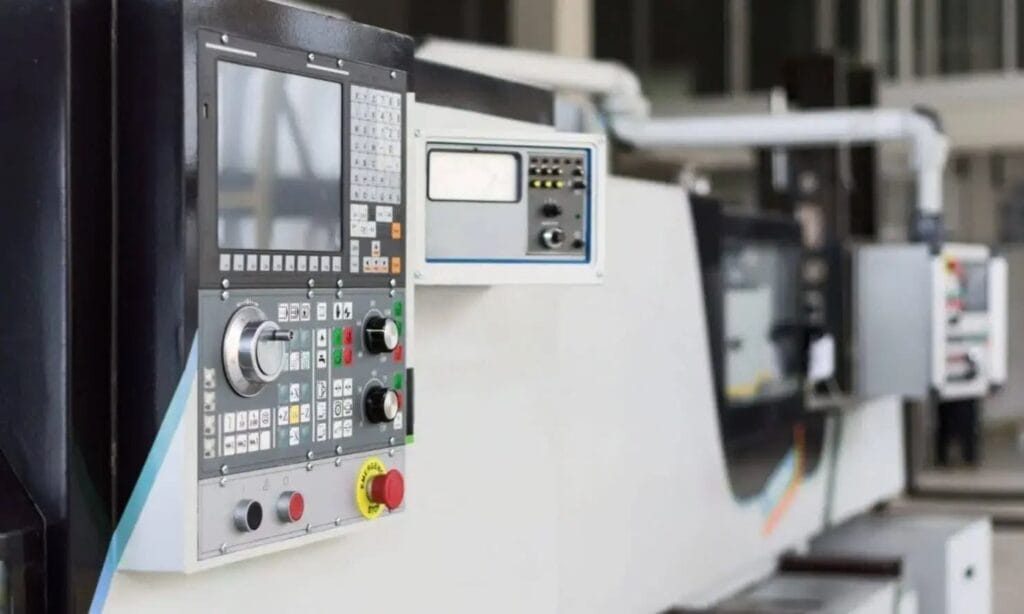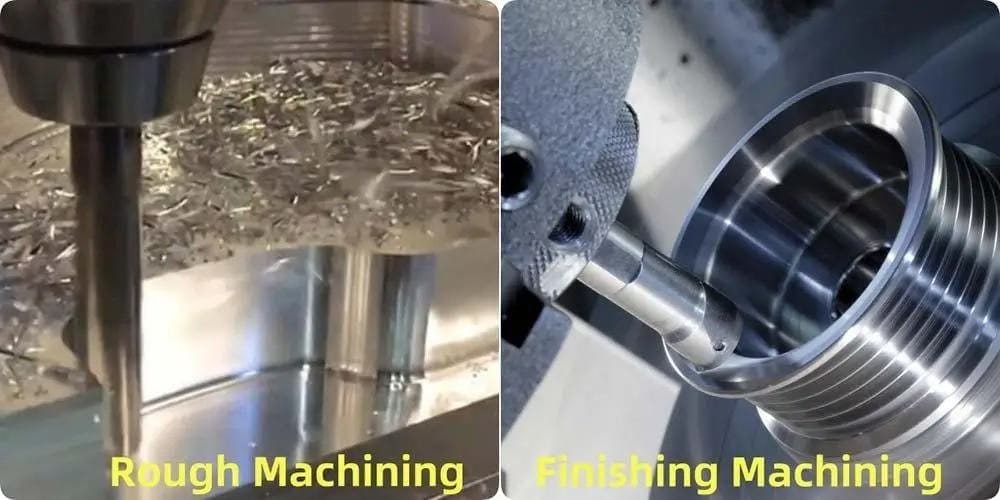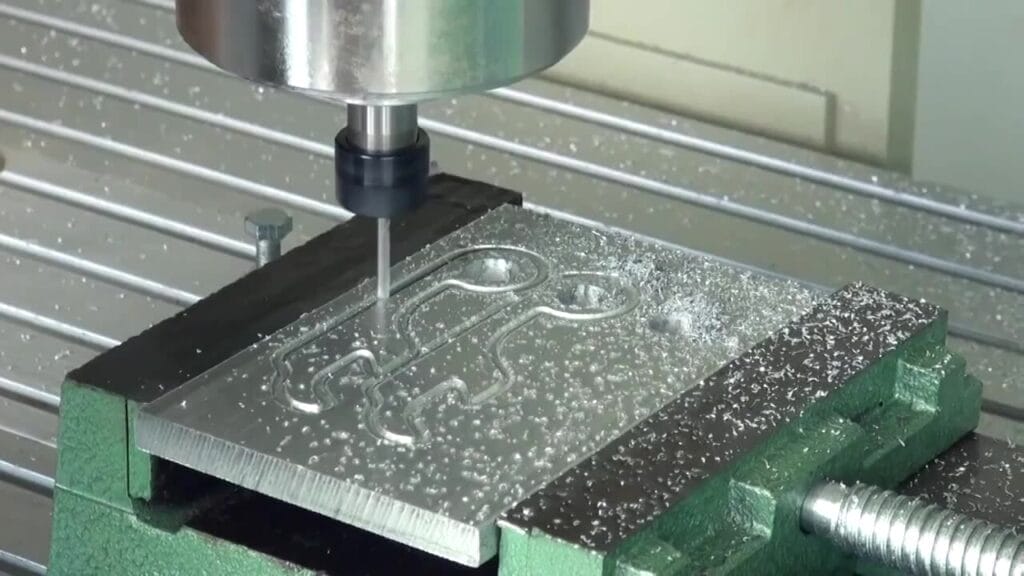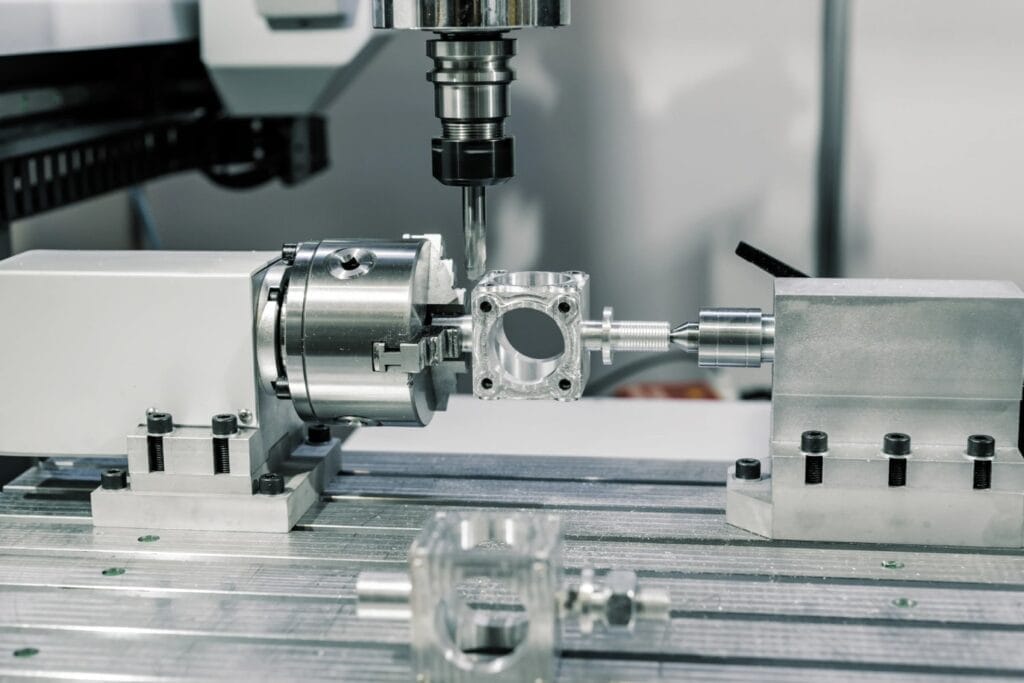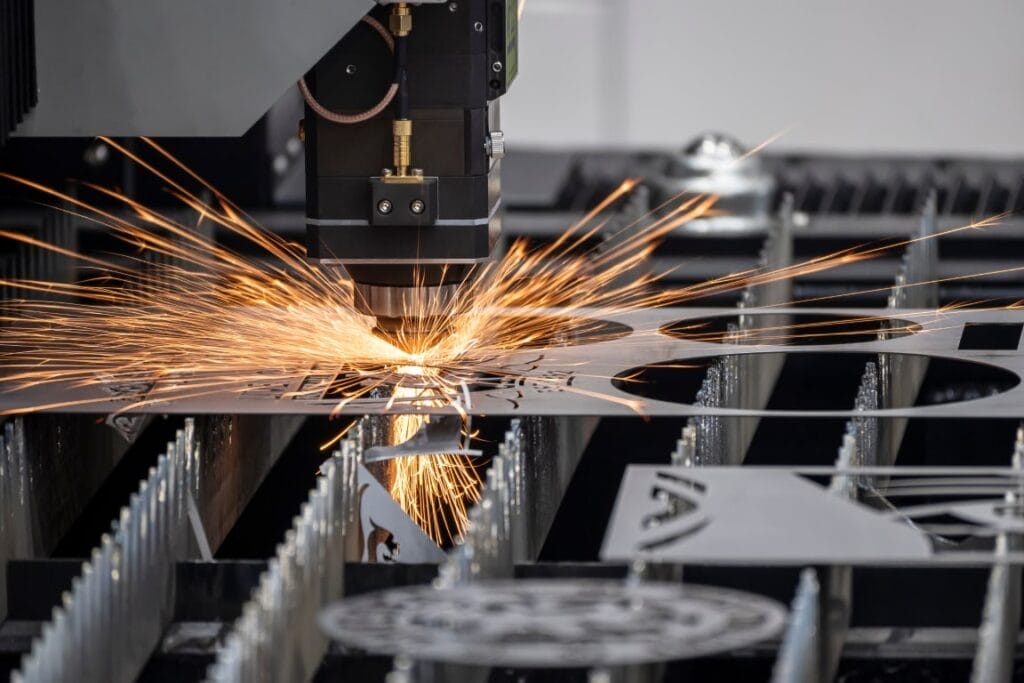- Precision Parts Manufacturer
- Services
- CNC Machining
- High Volume
High-Volume CNC Machining | Bulk & Large-Scale Production
Yijin Hardware specializes in high-volume CNC machining services for rapid production of precision components. As an ISO 9001 certified manufacturer, we deliver consistent quality and efficiency across multiple industries including automotive, aerospace, medical, maritime, and consumer goods.
Our advanced multi-axis CNC technology supports both prototyping and large-scale production runs, ensuring tight tolerances and superior quality control throughout the manufacturing process.
- ⬤Service
- ⬤Your Details
- ⬤Submit


What is High-Volume Machining?
High-volume CNC machining is a specialized manufacturing process designed for the rapid production of large quantities of parts and components. This technique uses advanced CNC machining technology to automate machining operations, significantly increasing productivity while maintaining tight tolerances and dimensional accuracy.
Unlike one-off or small batch production, high-volume CNC machining focuses on optimizing the entire manufacturing process for maximum efficiency. This includes specialized fixturing, dedicated machine setups, and streamlined material handling to minimize changeover time and maximize throughput. The process is carefully engineered to maintain consistent quality across thousands or even millions of identical parts.

Our High-Volume CNC Machining Services
At Yijin Hardware, we offer comprehensive high-volume CNC machining services tailored to meet diverse production needs. Our capabilities include:
- Multi-Axis CNC Machining: We use state-of-the-art multi-axis CNC machines to produce complex geometries with high precision, including 3-axis CNC machining for efficient production of simple geometries and 4-axis CNC machining for more complex parts requiring rotational features.
- Rapid Production: With our streamlined production processes, we meet tight deadlines without compromising on quality. Our rapid prototype machining services can quickly transition from sample parts to full-scale production.
- Quality Assurance: We implement rigorous quality control measures throughout the manufacturing process to ensure product quality. Our precision machining services maintain tight tolerances even during high-volume runs.
- Complete Material Expertise: We excel at aluminum CNC machining, stainless steel CNC machining, and various other metals and plastics, ensuring the right material for your application.
Advanced Turning Capabilities: Beyond milling operations, our precision CNC turning components service handles high-volume production of cylindrical parts with exceptional accuracy.


The High-Volume CNC Machining Process
The high-volume CNC machining process includes design, prototyping, material selection, machining operations, and quality control:
- Design and Prototyping: Using CAD software, we create detailed designs and prototypes to ensure the final product meets your specifications. This critical stage sets the foundation for efficient mass production.
- Material Selection: We choose suitable materials, such as metals and plastics, based on the project requirements. Our expertise in advanced metal machining ensures optimal material selection for your specific application.
- CNC Programming: Our programmers develop efficient CNC programs using CNC M-code list and G-code commands optimized for high-volume production. These programs balance rapid material removal with precision finishing.
- Machining Operations: Our CNC machines perform various operations, including milling, turning, and drilling, to manufacture parts with high precision. We utilize specialized roughing and finishing processes to maximize efficiency and surface quality.
- Quality Control: Throughout the production cycle, we conduct inspections to guarantee that every part meets our stringent quality standards. This includes in-process verification and statistical process control to ensure consistency across large production volumes.
This systematic approach allows us to produce large quantities of parts while maintaining consistency and accuracy throughout extended production runs. Our dedicated production teams monitor the entire process, making real-time adjustments to ensure optimal performance.
Materials Used in High-Volume Machining
In high-volume machining, the choice of materials significantly affects the production process and final product quality. Common materials include metals, plastics, and composites:
- Metals: Aluminum, steel, and titanium are frequently used due to their strength and durability. Our specialized knowledge in efficient aluminum machining techniques enables us to process this common material at maximum efficiency.
- Plastics: Various thermoplastics are chosen for their lightweight properties and versatility. We carefully optimize cutting parameters for different plastic types to prevent thermal damage during high-speed machining.
- Composites: Advanced composite materials offer enhanced performance for specific applications. These materials often require specialized machining strategies to prevent delamination during high-volume production.
- Material Comparison: When helping clients select materials, we consider factors like machinability, cost-effectiveness at scale, and performance requirements. Materials that are easy to machine, like 6061 aluminum, often provide significant cost advantages in high-volume production compared to more exotic alloys.
Selecting the right material is crucial for achieving optimal performance and cost efficiency in mass production. Our materials experts can help you balance functional requirements with production economics.


Technology Used in High-Volume CNC Machining
The technology behind high-volume CNC machining is continually evolving, improving efficiency and precision. Key technologies include CNC machines, robotics, automation, and advanced software solutions:
- CNC Machines: Our high-precision CNC machining centers automate the machining process, allowing for rapid production without manual intervention. We maintain a fleet of machines specifically configured for high-volume applications.
- Robotics and Automation: Integrating robotics into our processes helps streamline operations and reduce labor costs. Automated part loading/unloading systems maintain continuous production for maximum efficiency.
- Advanced Software Solutions: Our use of sophisticated CAD/CAM software improves design accuracy and simplifies programming. Simulation tools verify machining operations before production begins, eliminating potential issues.
- Integrated Quality Systems: Automated measurement systems directly interface with our CNC controls, providing real-time feedback to maintain consistent quality across extended production runs.
- Industry 4.0 Implementation: Our networked machines provide production data that helps identify bottlenecks and optimize workflow in real-time, further enhancing efficiency.
We employ these technologies to meet the demands of today’s fast-paced manufacturing environment while ensuring high-quality output, even when producing thousands of identical components.
The Benefits of High-Volume CNC Machining
High-volume CNC machining offers many advantages, including cost savings, efficiency, and consistency:
- Cost Efficiency: By producing large quantities of parts simultaneously, we achieve economies of scale that reduce overall production costs. Typically, per-unit costs decrease by 40-60% when scaling from 100 to 10,000 units.
- Speed: Automated processes allow for rapid production times, helping clients meet tight deadlines. Our optimized high-volume processes reduce lead times by up to 70% compared to small-batch production.
- Consistency: The precision of CNC machines ensures uniformity across all produced parts and enhances product quality. Statistical process control ensures that the last part produced meets the same specifications as the first.
- Material Optimization: High-volume production allows for more efficient material usage, reducing waste and further lowering costs.
- Simplified Quality Management: With established processes, quality management becomes more streamlined, requiring fewer inspections per part while maintaining overall quality standards.
These benefits make high-volume machining a preferred choice for many industries looking to optimize their manufacturing processes while maintaining the highest quality standards.


High-Volume CNC Machining Industries
High-volume CNC machining serves a wide range of industries, including automotive, aerospace, consumer products, maritime, medical, energy, and semiconductor:
- Automotive: Manufacturing components such as engine parts and transmission housings that require both precision and durability. Aerospace: Producing critical components with strict safety and performance standards. Our aerospace precision machining service ensures compliance with industry certifications like AS9100.
- Consumer Products: Creating everyday items that require mass production with consistent quality, from electronic device housings to high-end appliance components.
- Maritime: Fabricating parts for ships and marine equipment, focusing on durability and precision in challenging environments.
- Medical: Producing high-quality components for medical devices that require stringent quality control and biocompatibility considerations.
- Energy: Manufacturing parts for renewable energy systems, including wind turbines and solar panels, where reliability is paramount.
- Semiconductors: Creating precise components for semiconductor manufacturing, where accuracy is crucial down to the micron level.
Each industry has unique requirements for materials, tolerances, and surface finishes, which we address through specialized production processes tailored to these specific needs.
Alternatives to High-Volume CNC Machining Services
| Method | Pros | Cons |
|---|---|---|
| Injection Molding | Scalable for complex plastic parts | High upfront mold costs |
| 3D Printing | Rapid prototyping; small batch production | Slow; costly for large volumes |
| Stamping | Quick for flat metal parts | Less precise than CNC machining |
| Casting | Cost-effective for certain shapes | Limited detail and finish quality |
While high-volume CNC machining is highly effective, there are alternatives worth considering, including injection molding, 3D printing, stamping, and casting:
Injection Molding
Injection molding is ideal for producing complex plastic parts at scale. This technique offers lower per-unit costs but requires significant upfront investment in molds.
3D Printing
3D printing allows for rapid prototyping and small batch production, but may not be cost-effective for large volumes due to slower speeds.
Stamping
Stamping is suitable for producing flat metal parts quickly, but CNC machining has a higher level of precision.
Casting
Casting involves pouring liquid metal into molds to create parts. This method can be cost-effective for certain shapes, however, casting may have limited options for detail and finish.
Each alternative has its strengths and weaknesses, depending on specific project requirements.


Why Choose Yijin Hardware for High-Volume CNC Machining?
Choosing Yijin Hardware means partnering with a leader in high-volume CNC machining. Our commitment to quality assurance ensures that every part meets your specifications.
We use advanced machinery and technology to streamline production processes while maintaining competitive pricing. With our experienced team of machining experts, we guarantee customer satisfaction by meeting your production deadlines while maintaining superior quality.

High-Volume Machining | Bulk & Large-Scale Production FAQs
The three primary machining processes are turning, milling, and drilling, all of which are integral to CNC machining manufacturing. These processes are widely used in production machining companies and are essential for manufacturing large quantities of parts with high precision and reduced lead times. The nature of CNC machines and multi-axis machining allows for efficient machining production that meets the needs of high-volume production runs. For complex components, these operations are often combined with specialized processes like grinding, honing, and EDM (Electrical Discharge Machining).
Machine tools help in mass production by enabling precise and efficient CNC production machining processes. Through the use of advanced CNC machines, these tools are designed to handle large production volumes with minimal errors and high consistency. Automated tool changers, pallet systems, and robotic part handling further enhance productivity by minimizing downtime between operations. CNC machining is typically the preferred choice for industries seeking advanced machining solutions, as it ensures scalability and precision, proving that machining is a game-changer in modern manufacturing.
In high-volume CNC machining, we typically maintain tolerances of ±0.001″ (0.025mm) for most dimensions, with capabilities down to ±0.0005″ (0.013mm) for critical features. These tight tolerances can be consistently maintained across thousands of parts through rigorous process controls, regular tool compensation adjustments, and statistical process monitoring. For extremely high-precision applications in industries like aerospace and medical, we can implement specialized processes to achieve even tighter tolerances on specific critical dimensions.
At Yijin Hardware, we consider orders of 500+ identical parts to be high-volume production, though the economics of high-volume machining become more favorable at 1,000+ units. Our high-volume processes are specifically designed to generate cost savings and efficiency improvements that become increasingly significant as quantities increase. For extremely high volumes (10,000+ units), we can develop dedicated manufacturing cells that maximize throughput while maintaining consistent quality.
Material selection significantly impacts high-volume machining costs through several factors: raw material costs, machinability (affecting cycle times and tool wear), and finishing requirements. Highly machinable materials like 6061 aluminum can reduce cycle times by 40-60% compared to titanium alloys, dramatically impacting per-part costs in high-volume production. Material availability and standardization are also important considerations, as commonly available materials in standard sizes reduce waste and lead times, further improving production economics.
CNC Resources
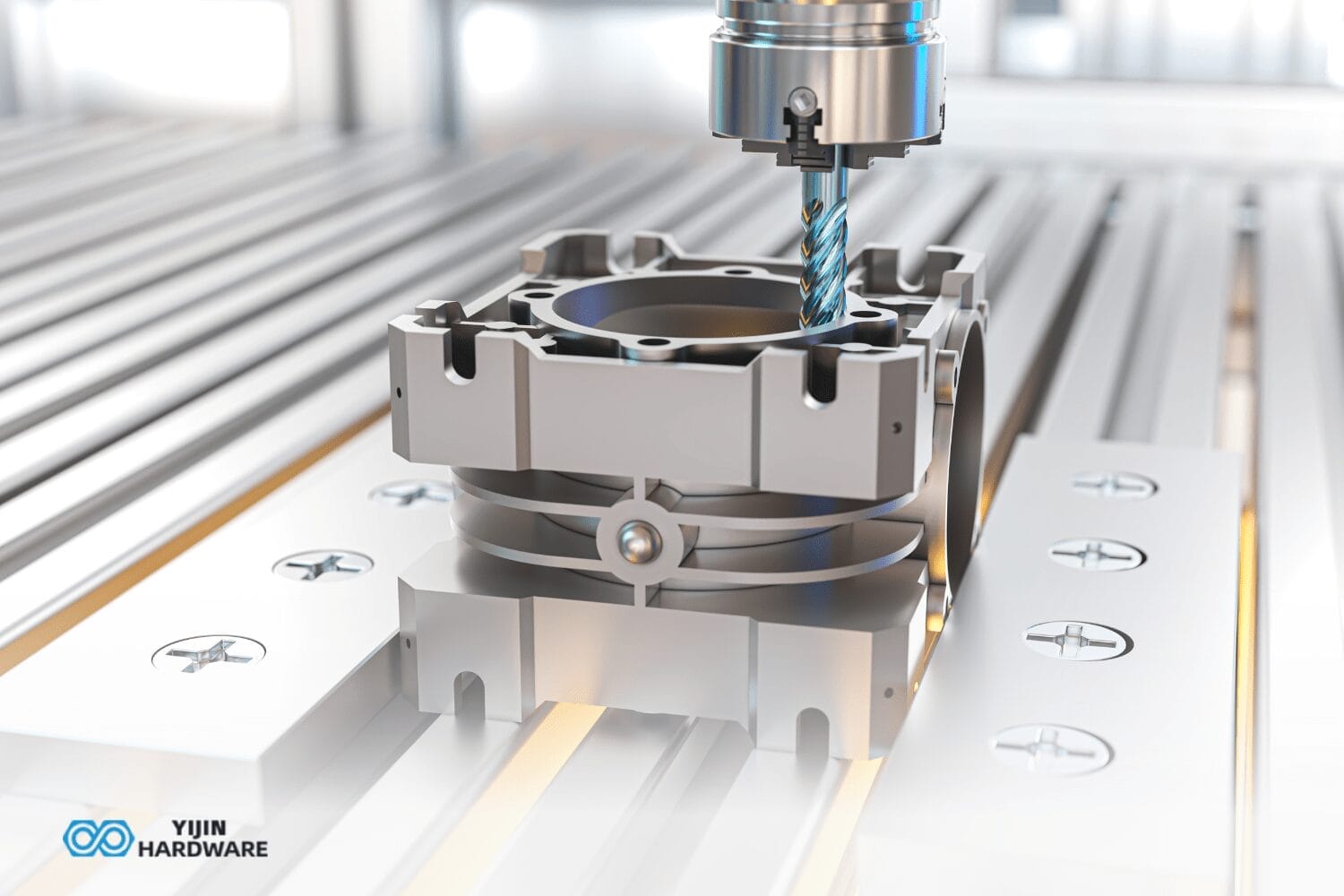
Top 10 CNC Automation Robots Manufacturers
CNC automation robots are totally changing how manufacturers approach production. They’re taking over repetitive and precision-critical tasks that used to
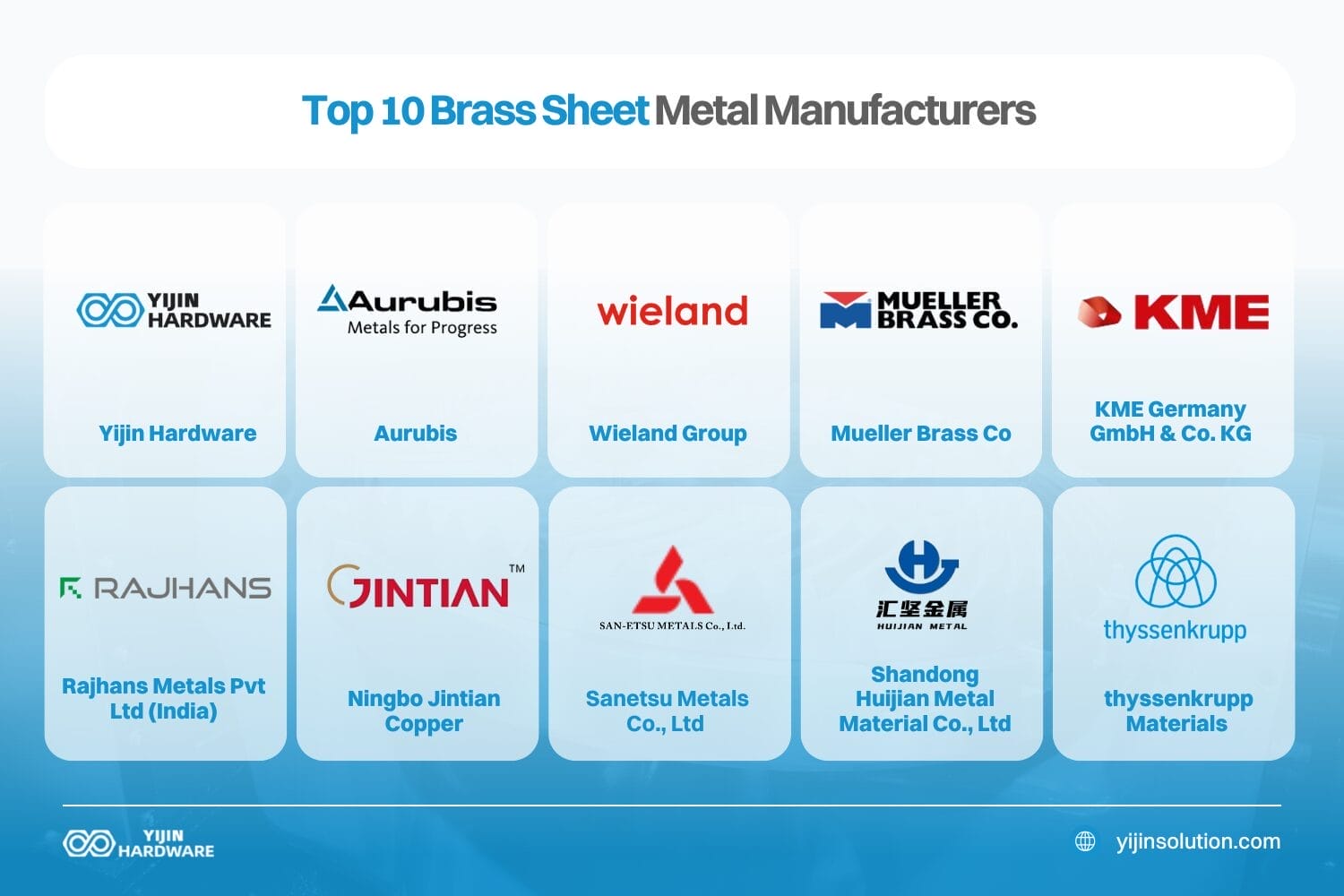
Top 10 Brass Sheet Metal Manufacturers
Brass sheet metal combines properties that make it valuable across multiple industries and attractive for architectural and decorative uses. Whether
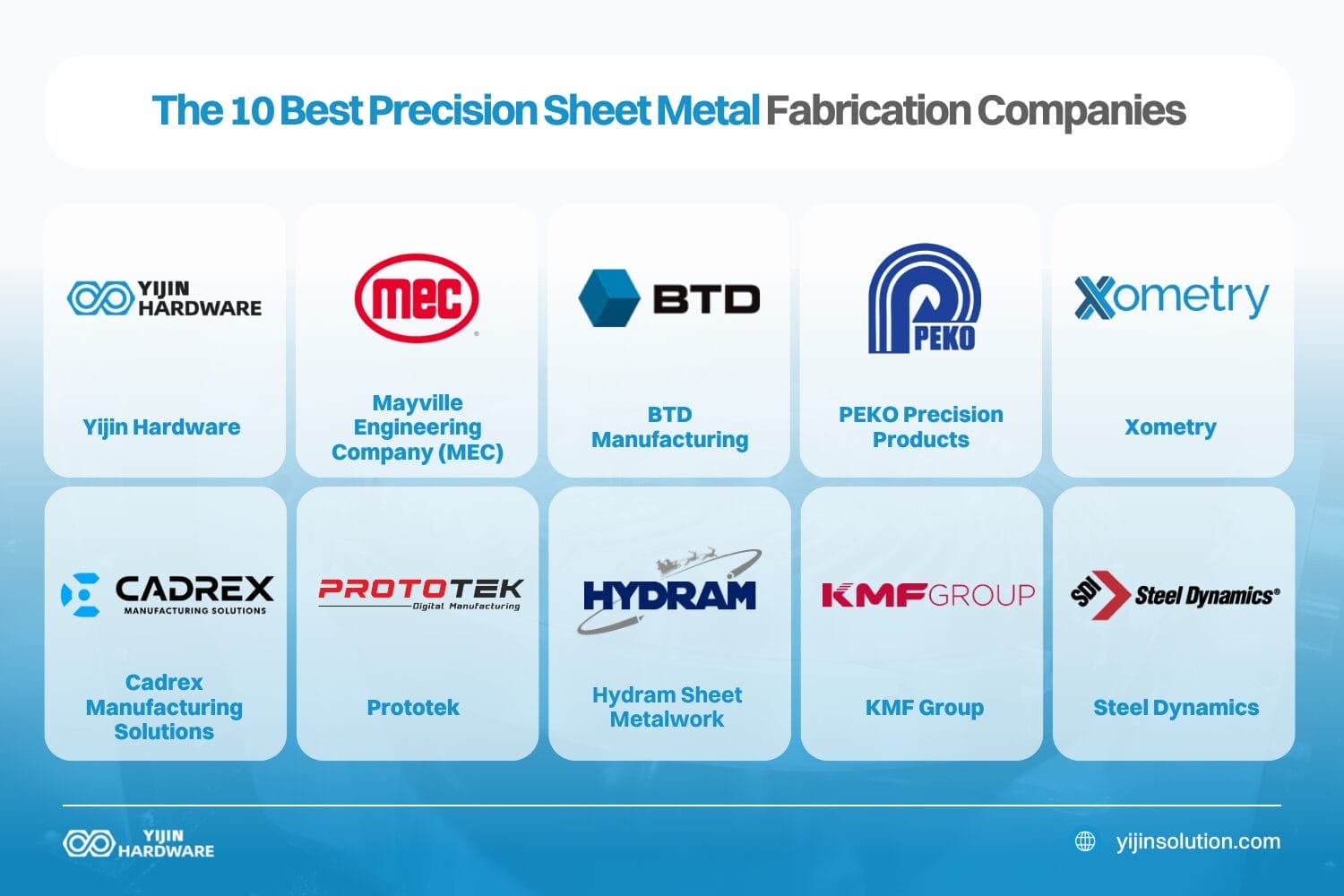
The 10 Best Precision Sheet Metal Fabrication Companies (Complete Guide)
Precision sheet metal fabrication isn’t your average metal shop work — it’s manufacturing that hits tolerances measured in thousandths of
Start today. Get parts made fast.
Free Machined Parts Design to Your Projects with Fast Turnaround Times.


